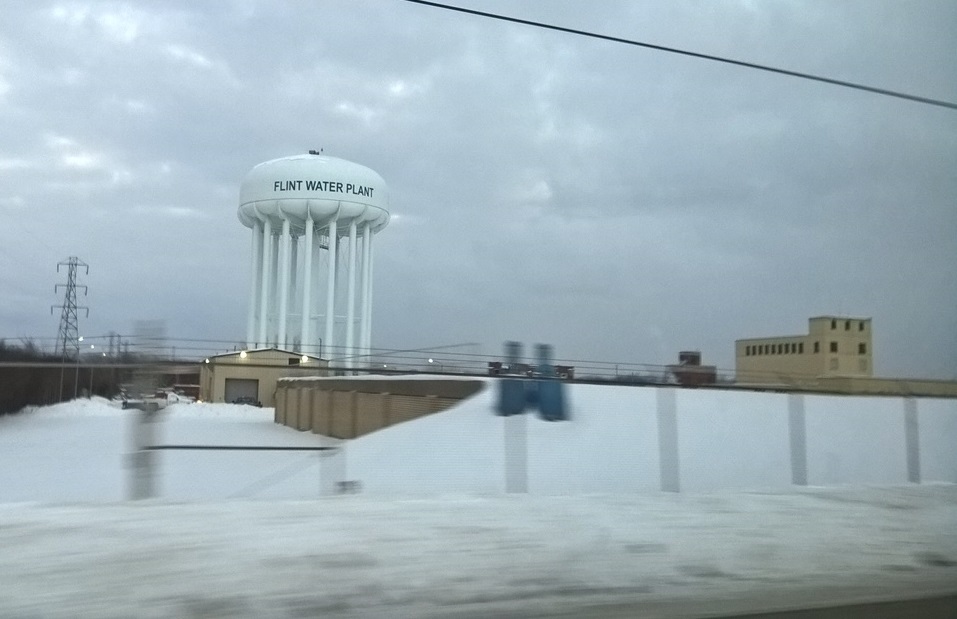Is Flint Settlement the Beginning of the End of the Water Crisis?
“It’s really historic, and it’s nationally significant,” says ACLU of Michigan Director Kary Moss

The Flint Water Plant water tower in Flint, Mich.

A federal judge on Tuesday approved a large settlement for the city of Flint to address its water crisis. The state will pay $87 million to Flint to replace 18,000 unsafe water lines by 2020, which also means an already three-year long crisis will last at least another three years. Is this the beginning of the end of the situation? Is it enough?
Detroit Today host Stephen Henderson speaks with Kary Moss, executive director of the ACLU of Michigan about the settlement and its rare nature.
“It was really kind of unimaginable if you think back to where we were a year, much less two years ago,” says Moss.
“This is the first time there’s ever been a court settlement under the Safe Water Drinking Act requiring that all lead service lines in a city be replaced, so it’s really historic, and it’s nationally significant.”
In addition to repairing lead lines, Moss says the settlement includes “eight or nine on-the-ground programs that will promote maternal-child health” as well as monitoring of the repairs by an entity independent of the state government. Still, she says, “This does not solve all the problems by any means.” There is still work to do, particularly regarding children over five being screened for educational disabilities as a result of lead poisoning. Moss hopes this settlement will serve as momentum for some of the unfinished business in Flint and for infrastructure nationally.
“One of the unintended consequences of this whole crisis is that it really put front and center for many, many cities that neglect of infrastructure has these real human costs. So what this agreement might do is hopefully inspire other cities to set timetables and begin to plan strategies for raising, generating funds to do it.”
Click the audio player above to hear Stephen Henderson’s full conversation with Kary Moss.
